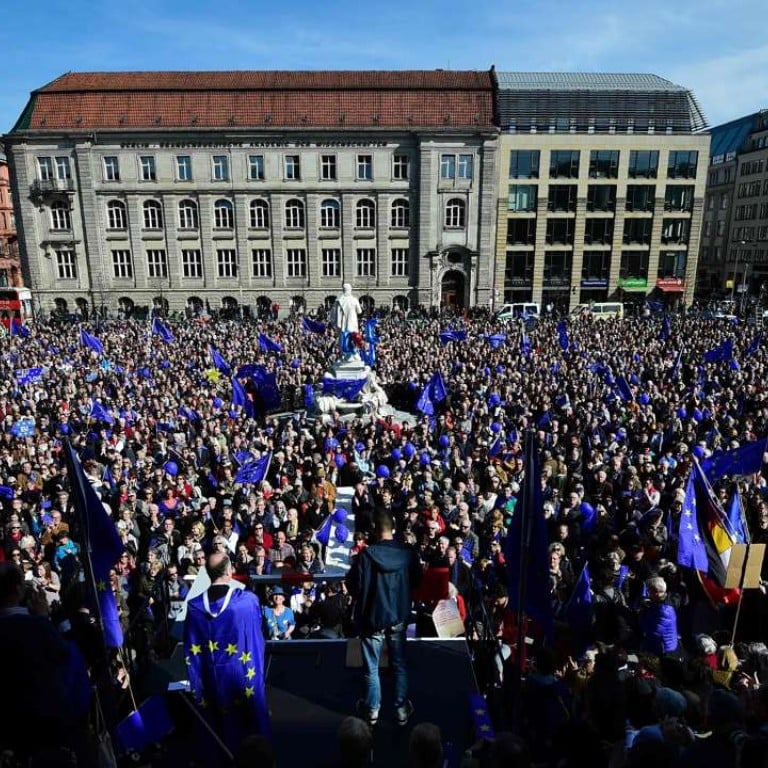
Don’t call Brexit a divorce – it will be much, much worse
Niall Ferguson expects an acrimonious, protracted British withdrawal from the EU that will rival the schisms of the past
Until now, nearly all the debate on Brexit has focused on what it means for the UK. But I begin to think the real significance of Brexit may be what it means for the EU.
Brexit is a huge blow – for the UK, not the EU
“Schism” is in fact le mot juste for Brexit, recalling as it does the great division between Western and Eastern Christianity in 1054, as well as the period between 1378 and 1417 when there were rival popes in Rome and Avignon. The defining characteristic of schisms is that they are drawn-out and bitter – and the more arcane the points at issue (such as when Easter should be celebrated, or the precise wording of the Nicene Creed), the deeper the schism becomes. By comparison with a schism, even the most acrimonious divorce is amicable, because the points at issue are quite simple: custody of young children, shares of property.
Countdown to Brexit: how Britain’s divorce from Europe could play out

As Rome was to past schisms, so Brussels is to this one. It has the upper hand because it made the rules. Article 50 of the Lisbon treaty was drafted quite deliberately not merely to deter countries from leaving the EU but to make sure that if any tried to do so, the effect would be to discourage others. Observe how this works.
The EU is now freed from what has long been the principal obstacle to further integration: Britain
Contrary to last year’s theory that Britain would be the first of many dominos to fall out of the EU, the precise opposite is happening. Contemplating Britain’s predicament, continental voters are backing away from full-blown secession from Europe. I predict there will be no Nexit, Frexit, Grexit or any other form of exit. Quite the opposite. For the EU is now freed from what has long been the principal obstacle to further integration: Britain.
It is easy to forget that Britain was always a thorn in the side of the European federalists, most obviously during the Maastricht negotiations. But now Britain is leaving, which means not only that the brake on federalism is removed, but also that the EU27 can unite in giving the UK a hard time.
On the latter issue, I fear, the Brexiteers have always been overly optimistic. May’s letter last week proposed that talks about Brexit proceed simultaneously with talks about the new “deep and special partnership” she would like Britain to have with the EU.
‘Very well, alone’ is a fine Churchillian phrase. I only hope we can live up to it
Will the federalist project ultimately fail, as British eurosceptics have long predicted? Maybe. Juncker personifies a decadent political elite that certainly deserves to fail. But it is hard to believe that a more federal euro zone will be worse than the halfway house of monetary union without fiscal union.

What would further continental integration mean for Britain? The optimists envisage an economic version of 1940, with a global Britain striking new free trade deals with the world. “Very well, alone” is a fine Churchillian phrase. I only hope we can live up to it. If those trade deals do not materialise, I have a nasty feeling that the real domino effect will be here, beginning with a Tory battle over the arcane details of the great schism and culminating in a narrow Scottish vote to dissolve the union and a return of the Troubles in Northern Ireland.
Mutual understanding key to smoothing Brexit talks
Those who argued for Brexit promised that the schism from the EU would lead to heaven rather than hell. Having argued against Brexit before the referendum, I said in December that I now understood why so many British voters had opted for it. The EU had performed so dismally in recent years that “Get me out of here” was a legitimate response. But, even as I recanted, I also said that I still expected the process of Brexit to be drawn-out and bitter. Nothing that happened last week has changed my mind about that.
It took 39 years to resolve the split between Rome and Avignon. The split between Roman Catholicism and Orthodoxy persists to this day. Schisms are like that. We have now begun the process of exiting the EU. Who knows when we shall exit the schismatic process that is Brexit itself?
Niall Ferguson is a senior fellow of the Hoover Institution, Stanford

